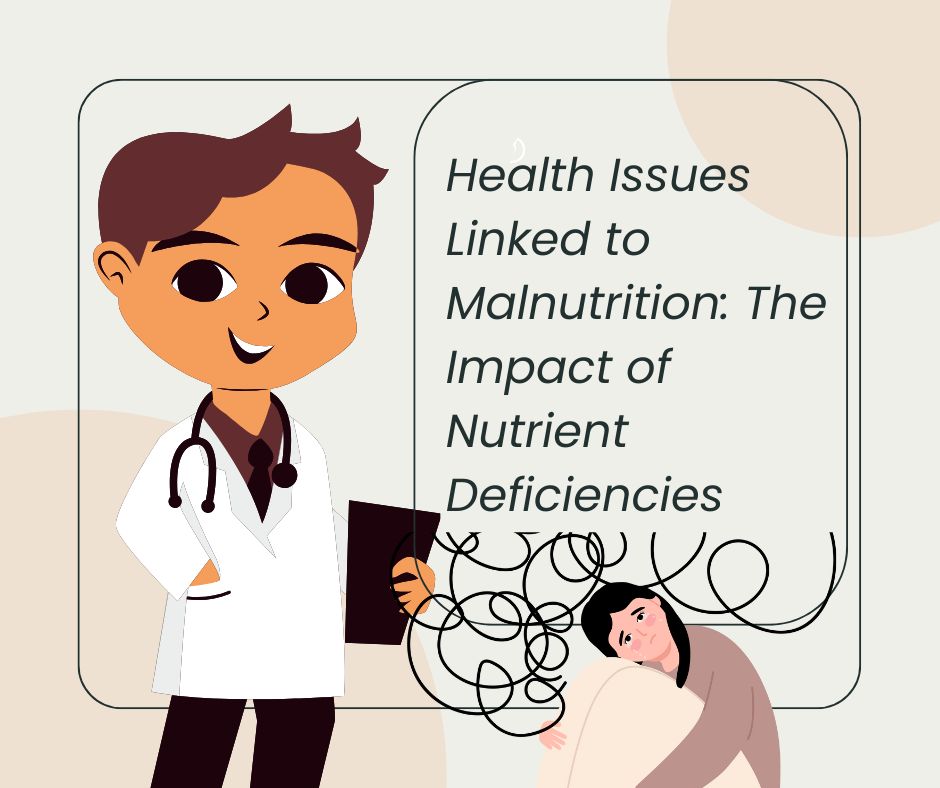which health issue is associated with malnutrition caused by lack of nutrients?

Malnutrition, caused by a lack of essential nutrients, is a global health issue that affects millions of people. It occurs when the body doesn’t receive enough vitamins, minerals, and other nutrients needed for proper functioning. This can lead to a range of serious health problems, from weakened immunity to chronic diseases. In this article, we’ll explore the health issues associated with malnutrition and how to prevent them.
What is Malnutrition?
Malnutrition refers to deficiencies, excesses, or imbalances in a person’s intake of nutrients. It can result from inadequate food intake, poor diet quality, or underlying health conditions that impair nutrient absorption. While malnutrition is often associated with undernutrition, it can also include overnutrition (e.g., obesity caused by excessive calorie intake without adequate nutrients.
Health Issues Associated with Malnutrition
Weakened Immune System
A lack of essential nutrients like vitamin C, zinc, and protein can weaken the immune system, making the body more susceptible to infections and illnesses.
Anemia
Iron deficiency is a leading cause of anemia, a condition characterized by fatigue, weakness, and shortness of breath. Vitamin B12 and folate deficiencies can also contribute to anemia.
Stunted Growth in Children
Malnutrition during childhood can lead to stunted growth, delayed development, and cognitive impairments. Protein-energy malnutrition (PEM) is a common cause.
Osteoporosis and Bone Disorders
Calcium and vitamin D deficiencies can weaken bones, increasing the risk of fractures and conditions like osteoporosis.
Eye Vision Problems
Vitamin A deficiency is a leading cause of preventable blindness, particularly in developing countries. It can also impair night vision and increase the risk of eye infections.
Neurological Disorders
Deficiencies in B vitamins (e.g., B1, B6, B12) can lead to neurological issues such as memory loss, nerve damage, and even dementia.
Skin and Hair Problems
A lack of essential fatty acids, vitamins (e.g., vitamin E), and minerals (e.g., zinc) can cause dry skin, hair loss, and slow wound healing.
Cardiovascular Diseases
Malnutrition can lead to imbalances in electrolytes like potassium and magnesium, increasing the risk of heart disease and high blood pressure.
Mental Health Issues
Nutrient deficiencies, particularly in omega-3 fatty acids, B vitamins, and magnesium, have been linked to depression, anxiety, and other mental health disorders.
Increased Risk of Chronic Diseases
Long-term malnutrition can contribute to chronic conditions like diabetes, kidney disease, and liver disorders.
How to Prevent Malnutrition
Eat a Balanced Diet
Include a variety of fruits, vegetables, whole grains, lean proteins, and healthy fats in your diet to ensure you get all essential nutrients.
Supplement When Necessary
If you’re at risk of deficiencies, consider taking supplements after consulting a healthcare professional.
Address Underlying Health Conditions
Conditions like celiac disease, Crohn’s disease, or food intolerances can impair nutrient absorption. Seek treatment to manage these issues.
Promote Food Security
Support initiatives that provide access to nutritious food for vulnerable populations.
Educate Yourself and Others
Learn about the importance of nutrition and share this knowledge with your community.
Conclusion
Malnutrition caused by a lack of nutrients is a serious health issue that can lead to a wide range of physical and mental health problems. By understanding the risks and taking steps to prevent nutrient deficiencies, we can protect our health and improve our quality of life. Remember, a balanced diet and access to nutritious food are key to preventing malnutrition.
Frequently Asked Questions (FAQs)
- What are the most common nutrient deficiencies?
Common deficiencies include iron, vitamin D, vitamin B12, calcium, and iodine.
- How does malnutrition affect children?
Malnutrition in children can cause stunted growth, cognitive delays, and weakened immunity.
- Can malnutrition be reversed?
Yes, with proper nutrition and medical care, many effects of malnutrition can be reversed.
- What are the signs of malnutrition?
Signs include fatigue, weight loss, frequent infections, poor wound healing, and hair loss.
- Who is at risk of malnutrition?
Vulnerable groups include children, the elderly, people with chronic illnesses, and those living in poverty.
- How can I ensure I’m getting enough nutrients?
Eat a varied diet, consider supplements if needed, and consult a healthcare professional for personalized advice.
Note: This content is for informational purposes only and does not constitute medical advice. Always consult with a healthcare professional 1 for any health concerns or before making any significant changes to your lifestyle


